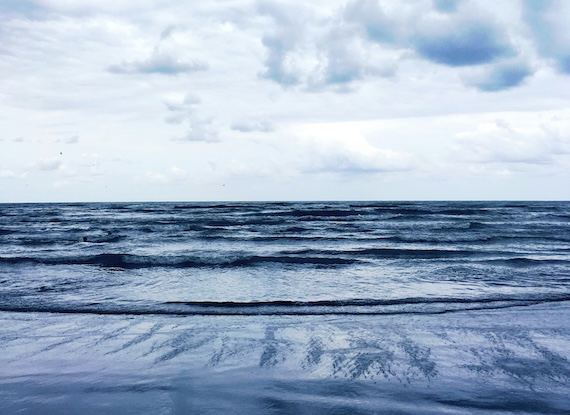( Global Voices ) – The Caspian Sea, the largest enclosed body of water in the world, faces a grim future in the form of significant desiccation, loss of flora and fauna, and large-scale pollution. All these processes have already started and their further deterioration poses immense risks for the economies and environment of the five littoral states: Kazakhstan, Russia, Azerbaijan, Iran, and Turkmenistan.
However, the list of affected stakeholders extends far beyond these countries, as the Caspian Sea plays an important role in the global trade, energy, and transport spheres. The sea is home to the third largest oil and natural gas reserves in the world and acts as the crucial link of the so-called Middle Corridor connecting Asia and Europe.
In recent years the water level reached the lowest recorded point in history. If the water level continues to decline at the current rate, it is forecasted it will drop by up to 18 meters by the end of the century. Under this scenario, the water surface will shrink by around 93,000 square kilometers, which is 34 percent of the surface area of the sea and roughly the size of Portugal. In this regard, the Caspian may repeat the fate of the nearby desiccated Aral Sea, which is considered one of the largest anthropogenic environmental disasters in the history of the world.


Photo of Vadim Ni. Used with permission.
Global Voices conducted a written interview with Vadim Ni, one of the founders of the Save the Caspian Sea campaign to discuss the challenges facing the sea, consequences of the pollution, and measures necessary to ensure that it does not repeat the Aral Sea’s fate. The interview has been edited for clarity and brevity.
Nurbek Bekmurzaev (NB): Can you please tell how Save the Caspian Sea was created? What are the main goals of your initiative?
NB: What are the problems and challenges facing the Caspian Sea face and jeopardizing its future? Who are its main polluters?
NB: Who is fighting to preserve the Caspian Sea at the local, national, and regional levels?
NB: What needs to be done to prevent the Caspian Sea from suffering the same fate as the Aral Sea?
